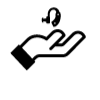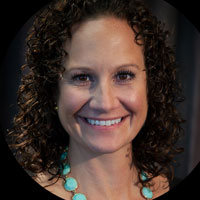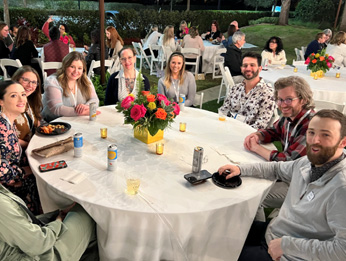
The most challenging aspect of addressing hearing loss is counseling the patient through the acceptance process of amplification. Even in countries where price is not a barrier, acceptance rates are still poor. Denial, cosmetics, stigma, and financial concerns remain the biggest barriers keeping more individuals from seeking treatment for their hearing loss sooner, before it takes a toll on their relationships as well as their physical and mental health.
Research shows that having a process for how you approach this important step can improve the likelihood your patient will accept the recommended help in the form of hearing aids. As hearing health professionals, we follow a process for conducting otoscopy, impedance, and the audiogram. Providers also need a process to guide their patients to accept the treatment of amplification.
Here are six easy tips to try during your next hearing aid evaluation that will help you do just that:
1. Allow the patient to verbalize his/her difficulties by asking the right questions in the best order.
 This creates ownership and identifies future objections to accepting help. Asking a specific question like “Tell me what you have noticed about your hearing” allows for the patient to verbalize their perspective. Alternatively, asking a vague question like “What brought you in today?” can often lead you down a less productive rabbit hole.
This creates ownership and identifies future objections to accepting help. Asking a specific question like “Tell me what you have noticed about your hearing” allows for the patient to verbalize their perspective. Alternatively, asking a vague question like “What brought you in today?” can often lead you down a less productive rabbit hole.
2. Use your “why” and the power of storytelling to establish trust, credibility, and a connection.
 Conveying who you are and why you do what you do is a proven way of building rapport and establishing credibility. Trust and credibility are key in compelling reluctant patients to take the next step.
Conveying who you are and why you do what you do is a proven way of building rapport and establishing credibility. Trust and credibility are key in compelling reluctant patients to take the next step.
3. Involve the companion.
 This should be a decision-maker with whom they communicate regularly. We are evaluating communication (“Who is it you communicate with the most?”) Typically, any medical or financial decision is discussed with family members, spouses, or close friends before moving forward. We know hearing loss also affects not only the patient but everyone around them.
This should be a decision-maker with whom they communicate regularly. We are evaluating communication (“Who is it you communicate with the most?”) Typically, any medical or financial decision is discussed with family members, spouses, or close friends before moving forward. We know hearing loss also affects not only the patient but everyone around them.
4. Set the stage by explaining the diagnostic process to build credibility and expectations of results.
 The power of visuals is even stronger than you may think. Simply show the blank audiogram and normal range of hearing in advance of the testing. By doing this, you are establishing expectations and reducing test anxiety that the patient might be feeling.
The power of visuals is even stronger than you may think. Simply show the blank audiogram and normal range of hearing in advance of the testing. By doing this, you are establishing expectations and reducing test anxiety that the patient might be feeling.
5. Demonstrate the technology.
 When you allow patients to try the amplification, within noise, it empowers them to understand the impact of their hearing. Everyone should be given the chance to experience how amplification can make a difference.
When you allow patients to try the amplification, within noise, it empowers them to understand the impact of their hearing. Everyone should be given the chance to experience how amplification can make a difference.
6. Transfer your enthusiasm with a strong recommendation.
 Excitement is contagious- patients are looking to you as the expert to tell them what they should do. Remember options can prolong action. They are coming to you because you are the professional who knows the best treatment for THEM.
Excitement is contagious- patients are looking to you as the expert to tell them what they should do. Remember options can prolong action. They are coming to you because you are the professional who knows the best treatment for THEM.
I know what you might be thinking: “Six steps? Easier said than done!” The good news is that you don’t have to do it alone. Part of CQ’s staff training and employee development program is helping providers deliver more effective hearing aid evaluations. Learning more about the many details within each of these steps will ensure that you or your provider(s) are helping more patients every day.
So, if I could add a seventh step it would be: 7. Act now, ask for help! That’s why we’re here!
Click here to learn more about the CQ Employee Development Program (EDP) or talk to your Account Manager today!










